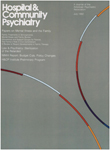Family Treatments of Schizophrenia: Background and State of the Art
Abstract
Schizophrenia, as a failure to achieve maturity and independence, has always had distressing effects on a patient's family. Unfortunately, scientific theories that propose the family itself as a contributing factor have eroded the alliance between professionals and family members and added to the burden of family guilt. The initiative in designing family therapy for schizophrenia began among an early group of innovators who subscribed to strong family-theory ideologies. Today a more pragmatic group, trained in various research methodologies, has taken the lead. The authors discuss the historical development of family therapy for schizophrenia and review new programs including relatives' groups, psychoeducational family therapy, and strategic and systemic approaches.
Access content
To read the fulltext, please use one of the options below to sign in or purchase access.- Personal login
- Institutional Login
- Sign in via OpenAthens
- Register for access
-
Please login/register if you wish to pair your device and check access availability.
Not a subscriber?
PsychiatryOnline subscription options offer access to the DSM-5 library, books, journals, CME, and patient resources. This all-in-one virtual library provides psychiatrists and mental health professionals with key resources for diagnosis, treatment, research, and professional development.
Need more help? PsychiatryOnline Customer Service may be reached by emailing [email protected] or by calling 800-368-5777 (in the U.S.) or 703-907-7322 (outside the U.S.).



